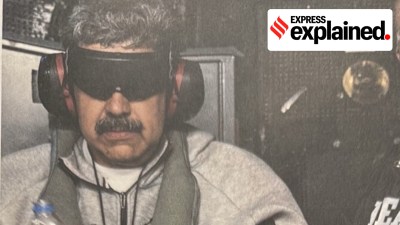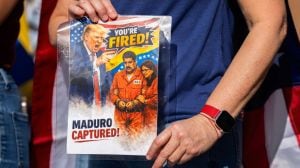Surgeon8217;s knife, not butcher8217;s
Though the idea of autonomy or secession of Kashmir evokes strong emotional reactions among the educated people, very few of them have rea...

Though the idea of autonomy or secession of Kashmir evokes strong emotional reactions among the educated people, very few of them have realised an important shift in Kashmiri opinion. In the last year or more, every single one of the hartals and other forms of public protest has been provoked by the killing of innocents by security forces in false encounters, custodial deaths and other human rights abuses. Neither the issue of autonomy nor azaadi has been the rallying point for any of the political protests.
During each of my three fact-finding visits to the Valley, I was impressed by the fact that every time we heard a tale of woe about arrest, torture or killing by the security forces, people did not try to hide whether the person targeted was actually a militant or an innocent. They would even tell us whether he had given up militancy or was still a part of the underground.
I was also struck by the fact that, in most of the cases, people expressed anger and outrage only when the person targeted was actually an innocent or had really given up terrorism and was trying to rebuild a broken life. Arrests and killings of actual terrorists did not evoke strong indignation.
Newspapers bring reports of over a dozen killings everyday. But public anger bursts over only in a few such cases. Whenever an even half-honest inquiry has been ordered, people8217;s allegations are almost always vindicated as happened with the 8220;encounter deaths8221; of six Kashmiri Muslims following the Chhattisinghpura massacre. At that time, despite repressive measures, people8217;s outrage came pouring out because the armed forces in a desperate bid to show 8220;results8221; had killed innocent men in cold blood under the guise of nabbing the guilty. When, under popular pressure, the bodies of the six dead men were exhumed, the allegations against the forces were proved.
What does this tell us? That, even at a time when Kashmiri society is undergoing a traumatic period, ordinary people have retained the sanity to distinguish between 8220;just dues8221; and undeserving infliction of cruelty. They get upset only when innocents are brutalised. Contrast this with the behaviour of our security forces. It is clear that they have not learnt to distinguish between innocent citizens and actual insurgents or terrorists, between legitimate forms of protest and violent insurgency. More often than not, they kill, maim, torture and crack down so indiscriminately that even the most pro-Indian Kashmiris feel estranged, humiliated and demoralised.
To quote a respected Kashmiri journalist: 8220;We need a surgeon8217;s knife, not a butcher8217;s.8221; We all need to be concerned that our security forces are widely perceived as butchers rather than upholders of our Constitution.
This is not to undermine the daunting task they are faced with in quelling not only an internal insurgency but also a proxy war by Pakistan waged by deadly foreign mercenaries. But it is time we realise that the failure of the security forces in curbing cross border terrorism is inextricably linked to the high level of anger against the Indian state for harassing, fleecing torturing and murdering innocent people in the name of counter-insurgency measures. Such crimes can only help further the Pakistani agenda in Kashmir.
Our politicians are never tired of repeating that any solution to the Kashmiri problem has to be found within the framework of the Constitution. Sounds noble and correct! But can the government say in all honesty that it is actually upholding the Constitution in the Valley?
Those who believe in the sanctity of our Constitution should also know that its most sacred part is Part III, the chapter on Fundamental Rights. Even criminals are not to be deprived of their life or personal liberty except according to procedure established by law. In addition, our Constitution also entrusts the government with ensuring free and fair elections.
Even the most avid defenders of the government dare not claim that the state has actually protected all these and other basic rights of Kashmiri citizens. If the government functionaries do not respect the Constitution, what faith can it inspire among the Kashmiris?
Ironically, some of those in power today were victims of the Emergency. They would do well to remember that the Emergency was a baby dose of authoritarianism in comparison to what Kashmir has been subjected to. The heavy, oppressive and all-pervasive presence of the armed forces makes even pro-India Kashmiris feel like a colonised people: a sentiment not conducive to producing loyal citizens.
Disgruntlement against the establishment is rampant all over the country. But regular, free and fair elections provide an important safety valve by allowing people the right to vote out parties that misgovern. But in Kashmir where, except in 1977, most elections are believed to have been rigged, the anti-government sentiment easily turns into anti-India sentiment.
If there is one name that commands respect all over the Valley, it is that of Morarji Desai. Why? Because, when he was the Prime Minister, he put his foot down against rigging of the 1977 elections in Kashmir, though many of his partymen wanted to follow the techniques used by the Congress of installing puppet regimes. By contrast, even Sheikh Abdullah is criticised for using strong arm, authoritarian methods to ensure that in the 1952 elections almost all his party candidates won unopposed 8212; this when his party was likely to win hands down any way. But Sheikh Sahib could not stand the idea of even a nominal opposition. His son Farooq suffers from the same complex. His misgovernance and disgraceful rigging of the 1999 election have led to widespread erosion of his support base.
Our government is currently believed to be attempting track two, track three and many other of initiatives to solve the Kashmir problem. Even if it succeeds in winning over a few 8220;leaders8221;, to make a deal of some kind, real breakthrough will come only when ordinary people feel safe and secure. For that the government needs to ensure a truly functional transparent, grievance redressal machinery which provides speedy relief to those whose human rights have been violated as well as punishment to the guilty.
The government should also build a better-trained security apparatus with more sophisticated intelligence-gathering abilities to distinguish between innocent citizens, passive sympathisers and active helpers of the terrorists. More important, they should know that torture is not the only or the most efficient way of getting necessary information.
These steps are necessary preconditions for working out a political solution. They will pave the way for the withdrawal of security forces to border areas, and working out a workable deal for political autonomy. This must provide for due safeguards for the interests of Jammu and Ladakh regions as well as participatory democracy down to the village level as in the rest of the country. This will be the best way of restoring the Kashmiri8217;s faith in democracy.
The writer is editor of Manushi8217;
- 01
- 02
- 03
- 04
- 05































